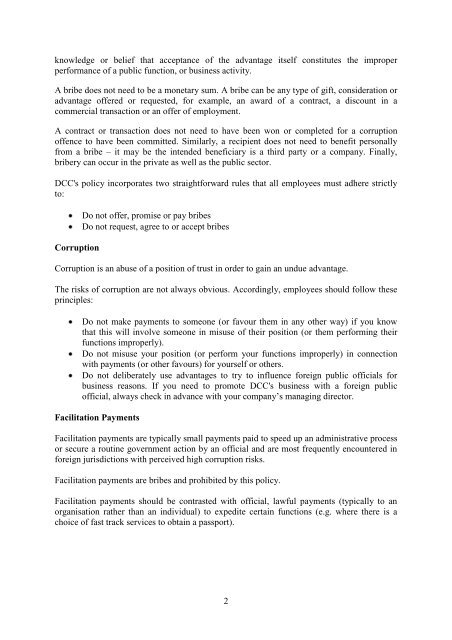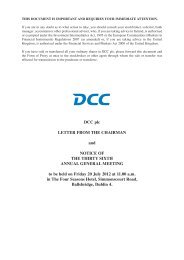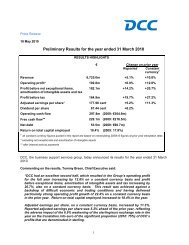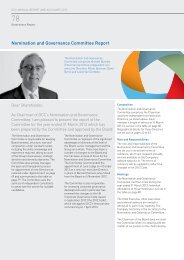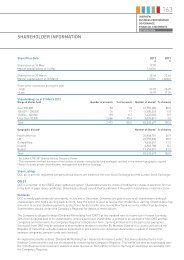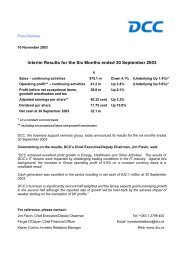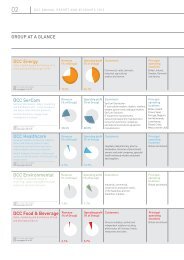DCC Group Anti Bribery and Corruption Policy - DCC plc
DCC Group Anti Bribery and Corruption Policy - DCC plc
DCC Group Anti Bribery and Corruption Policy - DCC plc
You also want an ePaper? Increase the reach of your titles
YUMPU automatically turns print PDFs into web optimized ePapers that Google loves.
knowledge or belief that acceptance of the advantage itself constitutes the improper<br />
performance of a public function, or business activity.<br />
A bribe does not need to be a monetary sum. A bribe can be any type of gift, consideration or<br />
advantage offered or requested, for example, an award of a contract, a discount in a<br />
commercial transaction or an offer of employment.<br />
A contract or transaction does not need to have been won or completed for a corruption<br />
offence to have been committed. Similarly, a recipient does not need to benefit personally<br />
from a bribe – it may be the intended beneficiary is a third party or a company. Finally,<br />
bribery can occur in the private as well as the public sector.<br />
<strong>DCC</strong>'s policy incorporates two straightforward rules that all employees must adhere strictly<br />
to:<br />
<strong>Corruption</strong><br />
Do not offer, promise or pay bribes<br />
Do not request, agree to or accept bribes<br />
<strong>Corruption</strong> is an abuse of a position of trust in order to gain an undue advantage.<br />
The risks of corruption are not always obvious. Accordingly, employees should follow these<br />
principles:<br />
Do not make payments to someone (or favour them in any other way) if you know<br />
that this will involve someone in misuse of their position (or them performing their<br />
functions improperly).<br />
Do not misuse your position (or perform your functions improperly) in connection<br />
with payments (or other favours) for yourself or others.<br />
Do not deliberately use advantages to try to influence foreign public officials for<br />
business reasons. If you need to promote <strong>DCC</strong>'s business with a foreign public<br />
official, always check in advance with your company’s managing director.<br />
Facilitation Payments<br />
Facilitation payments are typically small payments paid to speed up an administrative process<br />
or secure a routine government action by an official <strong>and</strong> are most frequently encountered in<br />
foreign jurisdictions with perceived high corruption risks.<br />
Facilitation payments are bribes <strong>and</strong> prohibited by this policy.<br />
Facilitation payments should be contrasted with official, lawful payments (typically to an<br />
organisation rather than an individual) to expedite certain functions (e.g. where there is a<br />
choice of fast track services to obtain a passport).<br />
2


